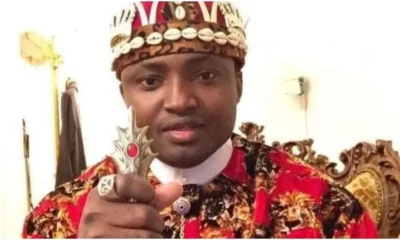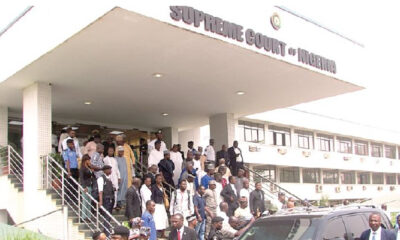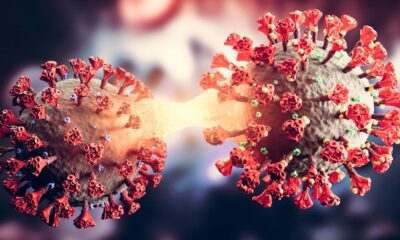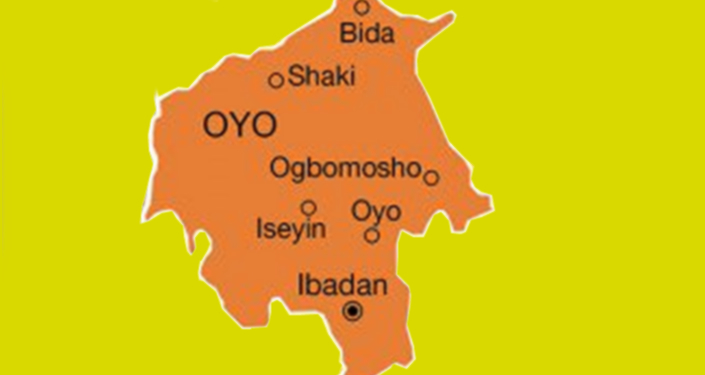Federal and state governments are bothered by some very important persons’ increasing disregard for the Nigeria Centre for Disease Control’s protocol on COVID-19.
It was gathered on Thursday that most of the individuals with COVID-19 symptoms, who patronised private hospitals, contrary to the government’s directive, were prominent persons.
At its daily media briefing on Thursday, the Presidential Task Force on COVID-19 said the government would shut unaccredited private hospitals secretly treating COVID-19 patients.
Among others, the NCDC’s protocol on COVID-19 requires anybody that comes from countries with a high burden of the virus to be in isolation for 14 days.
Besides, if such individuals show symptoms of the virus, they are not expected to seek treatment at unaccredited hospitals but contact the NCDC.
Also, unaccredited hospitals that get such patients are required to refer them to health facilities approved for treating COVID-19.
A top government official, who confided in The PUNCH, said the task force and other agencies were worried about some prominent persons’ disregard for extant rules on COVID-19.
The source cited the Kano State index case, a retired ambassador; a Kwara State accountant, the late Mudeen Obanimomo, and some instances in Lagos, where rich suspected COVID-19 patients went to private hospitals.
He also said the Lagos State Government was aware that many residents of highbrow areas such as Ikoyi, Banana Island and Victoria Island shunned government’s directive on self-isolation when they came from abroad.
The government official stated, “In Lagos, we have had some people, who after coming from abroad, showed symptoms of COVID-19. Because they were ashamed to go to the Infectious Disease Hospital, Yaba, they went to private hospitals. They later headed for the IDH or the Lagos University Teaching Hospital, Idi-Araba and the Lagos State University Teaching Hospital, Ikeja when it was too late.”
Recall that a chartered accountant and auditor, Obanimom, who returned from the United Kingdom, died of COVID-19-related complications at the University of Ilorin Teaching Hospital earlier this month.
A professor of medicine at the UITH, Prof. Alakija Salami, who brought the deceased to the hospital, had allegedly claimed that the man was suffering food poisoning and it was on that basis that he was admitted.
The UITH authorities subsequently suspended the professor and isolated 25 medical workers that came in contact with the late accountant, when his travel history and other facts became known.
A few days ago, a former ambassador, who was the first COVID-19 case in Kano State, allegedly violated the NCDC’s directive on self-isolation after coming abroad.
Commenting on the issue, the Special Adviser to the Kano State Governor on Media, Alhaji Salihu Yakasai, said the state would close any private hospital treating COVID-19 patients.
In an interview with The PUNCH, he said, “Henceforth, if any private hospital treats COVID-19 patients, the government has no option but to close the facility down.”
He said although patients with coronavirus symptoms might not tell hospitals the truth, that should not be a reason to treat patients with the symptoms.
Kano index case hid travel history, attended parties – Doctor
But a medical doctor, James King, who had contact with the index case, said the patient hid his travel history
The medical doctors and others, who had contact with the index case, tested negative for coronavirus on Thursday.
King, in a Facebook post on Thursday, narrated how the index case arrived at the hospital and was later taken for isolation by security agents.
The Kano-based doctor explained that the patient had wilfully withheld information about his recent travel history and COVID-19 test, He added that the index case had attended several public events.
According to him, the index case visited the hospital on April 10 with complaints of fever and general body weakness, mouth dryness and loss of appetite.
He said, “It was unknown to us that he was alleged to have travelled abroad too before returning to my resident state (Kano) via Abuja, travelling by road. While travelling by road, he stayed briefly in Kaduna before arriving in my resident state on March 25, 2020.
“He denied all this travel history to us. He also denied having the pertinent coronavirus symptoms; breathlessness and cough. He hid the fact that he had been to several medical outlets since his return to the state.
“And importantly, he did not provide information that his samples were taken by the NCDC for COVID-19 testing before coming to us.”
King added that the patient claimed to have felt ill for a few days but denied symptoms of cough, breathlessness or palpitations.
“Of course, he denied all the above in order for him to have our medical care. Putting us all and many others at high risk of the novel pandemic. Many other medical questions were asked and documented.
“He was further evaluated, examined and admitted into a private room upstairs on Friday 10th, April 2020 about 7pm by my boss. He had contact with two doctors (my boss and me), three nurses and one non-medical member of staff.
“We also learnt that, during his illness, before coming to us, he was attending Friday mosque prayers, naming ceremonies and other gatherings.”
King stated that the following day, health officials with massive police presence staged a “Nollywood-like dramatic entrance” into the hospital, while a major road around the facility was blocked and made a security restricted area.
He said, “The officials told us that we had a man in our facility that had just tested positive for COVID-19. There was an order from the governor of the state to lock down the hospital immediately to prevent further spread.
“The patient was whisked away to a quarantine centre on the outskirts of the state. We were placed in isolation too in our hospital facility. Samples were taken from our staff for COVID-19 testing.
“For many days, we could not physically reach our families or anyone. At last, the results came out yesterday afternoon, April 15, 2020, and it was negative for all of us.”
He added that they had yet to be released from isolation.
But the Minister of Health, Dr Osagie Ehanire, said private hospitals treating COVI-19 patients secretly would be shut.
Ehanire spoke during the briefing of the Presidential Task Force on COVID-19 in Abuja, where he also advised against physical contacts with grandparents who were vulnerable to coronavirus.
He said it was unfortunate that a medical doctor (in Lagos) died of the virus after contracting it.
He stated that it underscored the risk involved in treating people infected with COVID-19 at an unauthorised medical facility.
Ehanire said, “Quite unfortunate, the latest fatality in Lagos is a medical professional. I want to express my condolences to the family. This highlights the risk to health workers in this COVID-19 response.
“Patients with mild symptoms are still very highly infectious, and mild symptoms in one person could be a deadly infection in another. That is why we recommend the suspension of close contact between grandchildren and grandparents at this time.
“Our valuable health workers are urged to adhere to all government instructions and regulations. Always utilise personal protective equipment; maintain a high index of suspicion for COVID-19; and protect yourselves, your loved ones and your colleagues.
“I shall use this opportunity to again strongly advise health professionals against private or secret management of people who have COVID-19 outside of accredited health facilities. We cannot afford avoidable morbidity and mortality.
“Private facilities must obtain accreditation to treat this highly infectious disease. Practitioners engaging in unauthorised treatment of COVID-19, run the risk of being shut down for decontamination.”
The minister said that the next phase of the PTF strategy in its effort to curb the spread of the virus would focus on community testing.
While addressing complaints from health workers in some hospitals that PPE was inadequate, the minister said that it was important to manage the national stockpile of the equipment because of the inability of foreign manufacturers to produce the materials.
Explaining procedure for discharging patients from the isolation centres, Ehanire said it varied from one patient to another. He stressed that it was important that a patient to be discharged must be tested twice and the result must be negative.

 BIG STORY15 hours ago
BIG STORY15 hours ago
 BIG STORY5 days ago
BIG STORY5 days ago
 BIG STORY2 days ago
BIG STORY2 days ago
 BIG STORY2 days ago
BIG STORY2 days ago
 BIG STORY3 days ago
BIG STORY3 days ago
 BIG STORY1 day ago
BIG STORY1 day ago
 BIG STORY2 days ago
BIG STORY2 days ago
 BIG STORY3 days ago
BIG STORY3 days ago
























